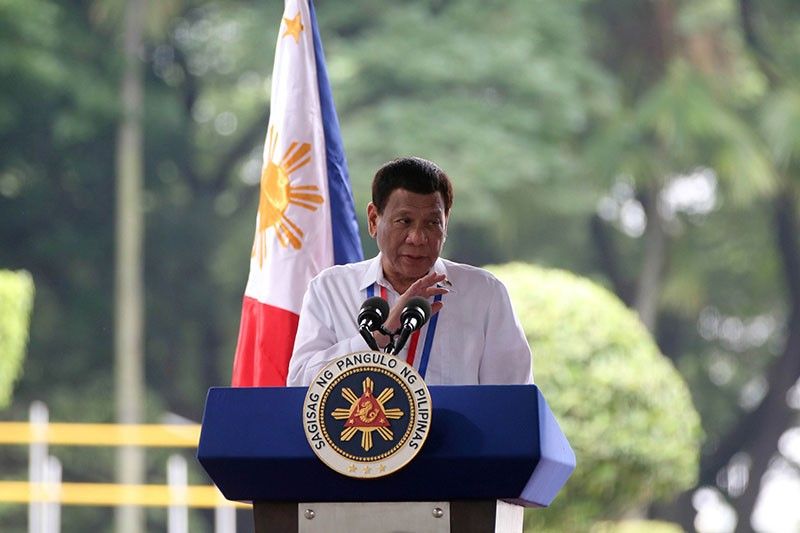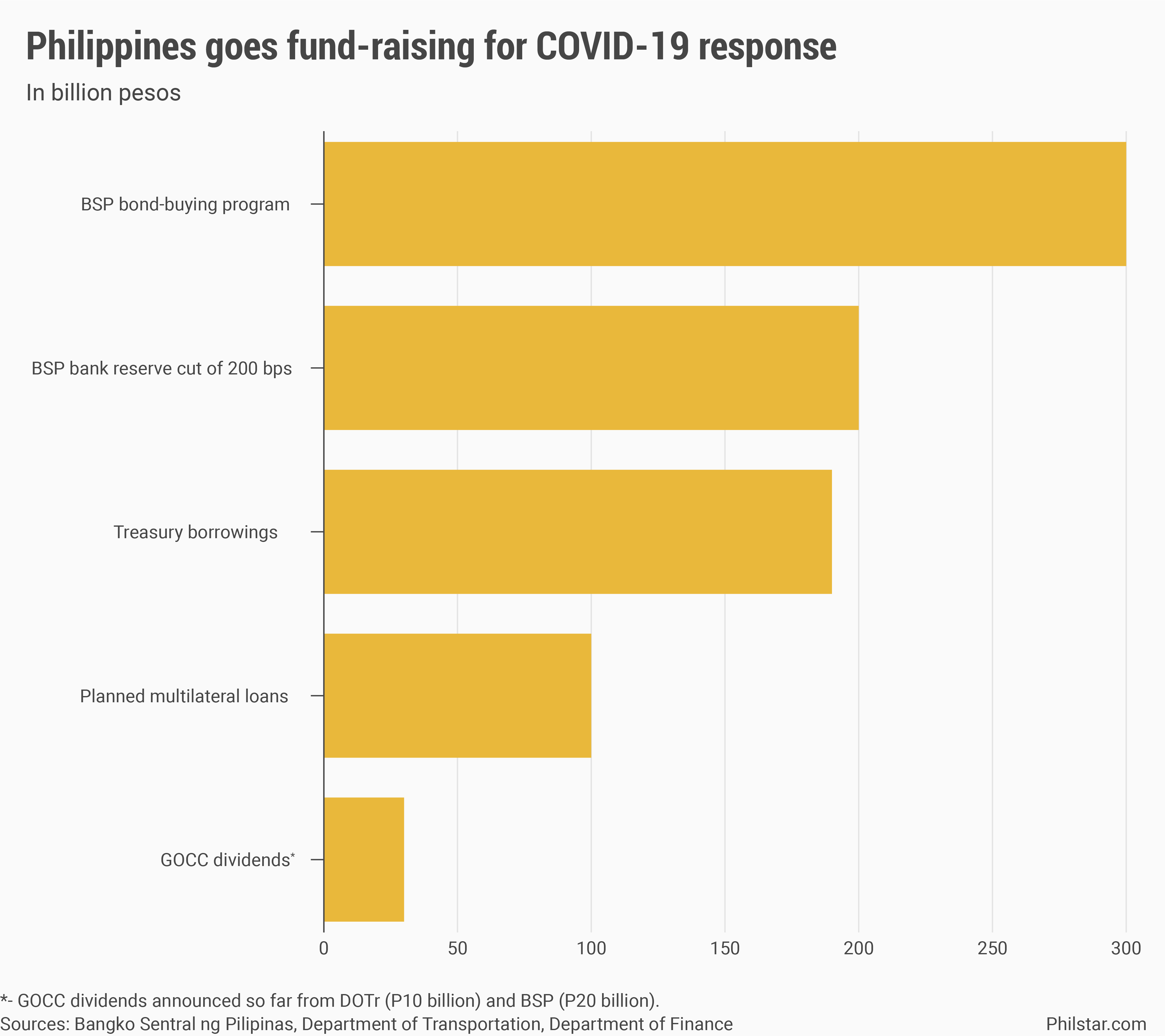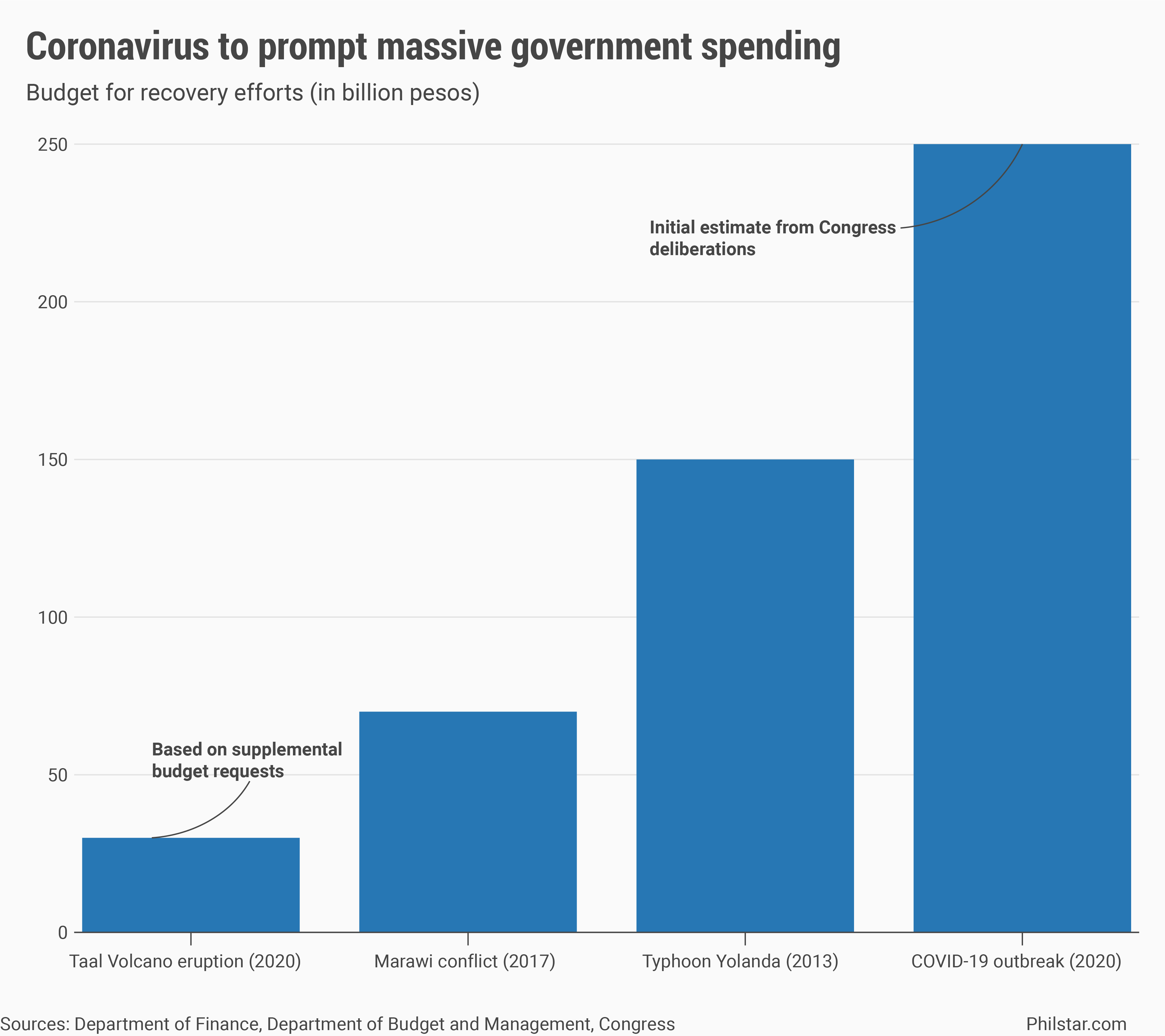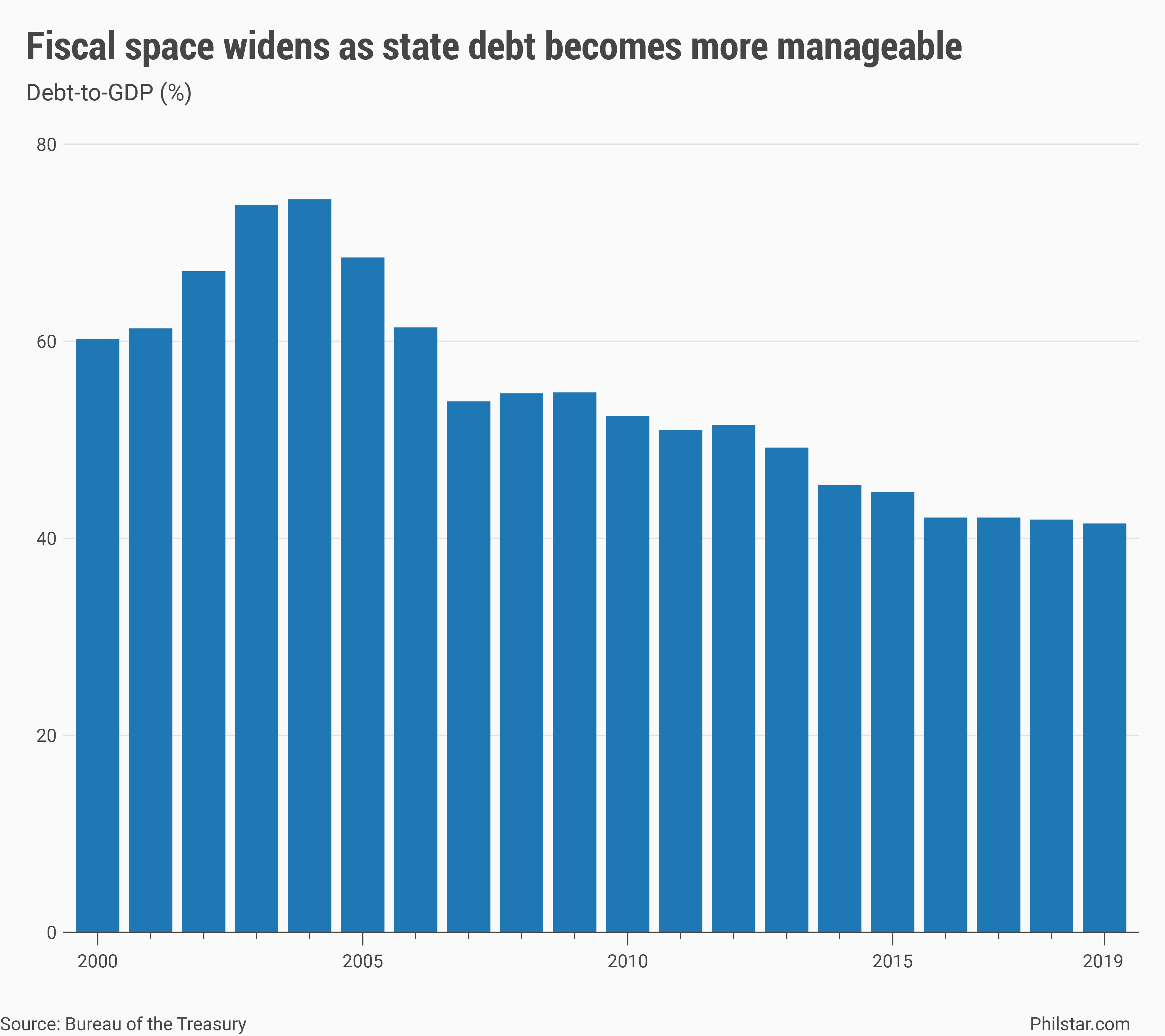Gov't prepares to exhaust fiscal leeway, political capital in Duterte's 'Yolanda moment'

MANILA, Philippines — A decade of fiscal discipline and record popularity are now being put to good use by President Duterte vowing to do whatever it takes to sufficiently counter the coronavirus disease-2019 (COVID-19) outbreak, which can make or break his legacy.
In the past week alone, around P800 billion in COVID-19 stimulus was announced, one after the other, by the Duterte administration, majority of which will be borrowed from the central bank and international lenders like Asian Development Bank (ADB) and the World Bank.
More funds may be borrowed. When asked how much increase in debt is the government willing to tolerate to respond to the outbreak, Finance Secretary Carlos Dominguez III said in a text message: “I don’t know because I don’t know when the contagion’s curve will be flattened.”
“We are not reducing the expenditure level of the 2020 budget,” he said.
The stream of funding pronouncements appears as a flexing of muscle from the government chastised for lack of foresight on dealing with the outbreak. The absence of stimulus similar to those unveiled in Malaysia and Indonesia did not only put investors on the edge, but also put into question government resolve to protect the poor from the impact of the outbreak, and the month-long Luzon quarantine intended to fix it.
The slow government action to fight COVID-19 brings up the memories of the sluggish reconstruction efforts after typhoon Yolanda in 2013, an event that usurped the popularity of then Aquino administration and led to the defeat of Manuel Roxas II during the 2016 presidential elections. Duterte himself capitalized on criticisms over Yolanda response during his campaign. This time, political analyst Ramon Casiple said a botched COVID-19 response can be a disadvantage to Duterte and his chosen successor in the upcoming 2022 polls.
“This is more than a Yolanda moment for Duterte,” said Casiple, executive director of the Institute for Political and Electoral Reform, a political think tank. “Him being a ‘Teflon’ president will not work on the series of crisis we are facing, if they are not handled well.”
Taking advantage of fiscal space
Of the P800 billion crisis funding so far, P300 billion will be provided by the Bangko Sentral ng Pilipinas (BSP) by purchasing Treasury bonds and rolling over the proceeds in the next six months. Another P200 billion would come from freed up funds by lower bank reserves starting March 31, P190 billion from Treasury borrowings, and another P100 billion ($2 billion) from multilateral loans.

For Ruben Carlo Asuncion, chief economist at UnionBank of the Philippines, large borrowings, at this point, are justifiable. “Any government has to do everything they can to keep the economy afloat,” he said in a text message.
Michael Ricafort, economist at Rizal Commercial Banking Corp., agreed. “Realistically, there would be a need to increase government spending/deficit spending to immediately respond to combat the adverse effects of COVID-19,” he said separately.
Indeed, a daunting task awaits the Duterte administration. While official estimates are unavailable, Congress deliberations revealed funding needs for COVID-19 to reach P250 billion. The amount easily overshadows budgets allocated for recovery during previous calamities such as the P150 billion for reconstruction after Yolanda in 2013, and the P70 billion allocated for the much-delayed Marawi rehabilitation, following a terrorist conflict in 2017.

Unfortunately, the government cannot rely on just revenues to fund all the spending. Businesses are likely to continue hurting from dismal sales even after a month-long Luzon lockdown ends on April 12 and prompt them to re-open, which means less taxable income for firms.
“Even now we are seeing delays in payments from customers as they are trying to hold on to their cash,” Eleanor Roque, tax advisory head at P&A Grant Thornton auditing firm, said in a text message.
This left the government with no choice but to borrow. The good news is the government is not taking in more debts from a weak position. Six years of fiscal restraint under the Aquino administration, coupled by new taxes and reforms under Duterte, have lowered state liabilities to a point that they do not become a burden to the economy.
Its clearest gauge, the proportion of debt to gross domestic product (GDP), was down to 41.5% last year from as high as 74.4% in 2004. This means any new debt taken in now will not be detrimental on state balance sheets to a point that they need to cut back spending on public goods.
“I just hope they are not being bogged down by the need to attain an “A” (credit) rating. It doesn’t seem to be relevant at this point,” said Emilio Neri, lead economist at Bank of the Philippine Islands, in a message through Facebook Messenger.

Political repercussions
Funding needs could still increase as the outbreak drags on, and so does the need for more political capital. Duterte’s emergency powers meant he is in full control of the crisis response, but with it comes also full accountability. As it is, the government is yet to fully roll out a concrete social package to help the poor.
“If the crisis response to COVID-19 is characterized by incompetence or lack of fairness, then indeed this could be a liability to the successor,” Mendoza said.
Casiple said if mishandled, the COVID-19 outbreak can “create a lot of instability.” “This is already becoming a vote by itself. If public perception is he bangled the crisis management, then his anointed successor will have problems in 2022,” he said.
Similar to a wide fiscal space however, Duterte is coming off strong to deal with the outbreak politically. In the latest Social Weather Stations survey taken on December 2019, Duterte’s net satisfaction rating hit an “excellent” of +73, with Luzon and Metro Manila being key to his quarterly uptick.
A good way to salvage Duterte’s political capital is to focus government resources on crisis response, but it seems the government is still bent on proceeding with its “Build, Build, Build” infrastructure agenda. Ricafort said this would mean a “delicate balancing act” on budgeting as well as responding to immediate social needs.
But finance chief Dominguez is unperturbed. “We can actually multi-task,” he said.
- Latest
- Trending





























